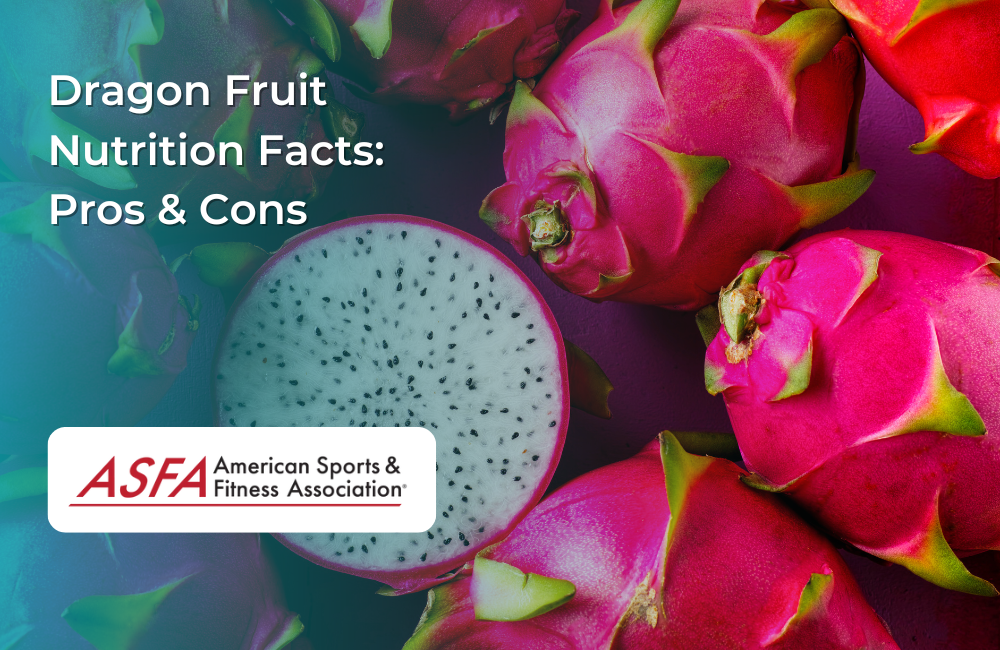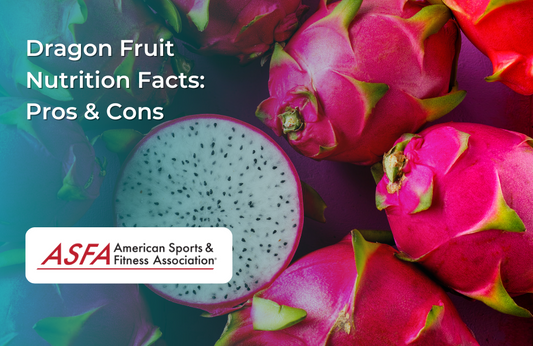Dragon fruit, also known as pitaya, is a tropical fruit known for its vibrant color, mildly sweet taste, and high antioxidant content. It is low in calories and rich in fiber, vitamins, and beneficial plant compounds. While dragon fruit offers numerous health benefits, it also has some limitations. Understanding the pros and cons helps in making informed dietary choices.
Dragon Fruit Nutrition Facts Pros Cons: Eating This Fruit
What is Dragon Fruit?
Dragon fruit, also known as pitaya or strawberry pear, is a vibrant tropical fruit that grows on the Hylocereus cactus, native to southern Mexico and Central America. Its unique appearance, with a bright pink or yellow skin and white or red flesh dotted with tiny black seeds, makes it an eye-catching addition to any meal. Dragon fruit is becoming popular in the health community due to its numerous benefits, including its high vitamin C content, antioxidant properties, and potential to support digestive health and immune function. The dragon fruit health benefits extend to aiding in pregnancy, managing diabetes, and enhancing overall nutritional intake.
Types of Dragon Fruit
Dragon fruit comes in vibrant varieties, each distinguished by its unique color, flavor, and texture. The most common types include yellow, purple, pink, and red dragon fruit. The American Beauty variety, known for its striking purple flesh, offers a unique, earthy flavor and is packed with essential nutrients. Yellow dragon fruit is known for its sweet, honey-like flavor, while red dragon fruit has a mildly sweet taste and is rich in antioxidants. Purple dragon fruit offers a unique, earthy flavor and is packed with essential nutrients. Each type offers unique advantages based on their specific characteristics, making dragon fruit a versatile superfood that can cater to specific health needs.
Dragon Fruit Nutrition
Dragon fruit is a nutrient-rich food that provides essential vitamins, minerals, and antioxidants, making it a fantastic addition to a balanced diet. Not only is it low in calories, but it is also high in fiber, which can help keep you feeling full and satisfied. Here’s a quick look at what one cup of dragon fruit offers:
-
2.5 grams of protein: Supports muscle repair and growth.
-
2.5 grams of fat: Provides essential fatty acids.
-
10 grams of carbohydrates: Offers a quick energy boost.
-
2 grams of fiber: Aids in digestion and promotes gut health.
-
10% of the daily value (DV) for vitamin C: Boosts the immune system and enhances skin health.
-
10% of the DV for vitamin B2: Supports energy production.
-
10% of the DV for vitamin B3: Helps maintain healthy skin and nerves.
-
10% of the DV for vitamin B6: Important for brain health and mood regulation.
-
10% of the DV for iron: Essential for oxygen transport in the blood.
Incorporating dragon fruit into your diet can help you meet your nutritional needs while enjoying a delicious and exotic fruit.
High in Antioxidants
The health benefits of dragon fruit include its rich antioxidant content, such as vitamin C, betalains, and flavonoids, which offer numerous health benefits:
-
Protect cells from oxidative stress and inflammation.
-
Support immune function and reduce the risk of chronic diseases.
Supports Digestive Health
Dragon fruit is a good source of fiber, which makes it an excellent choice for digestive health. The high fiber content in digestive health dragon fruit:
-
Promotes healthy digestion and regular bowel movements.
-
Feeds beneficial gut bacteria, improving gut microbiome health.
It is important to consume dragon fruit in moderation as part of a balanced diet to maximize its digestive health benefits.
Rich in Vitamin C for Immune Support
One of the benefits of dragon fruit is that one serving provides a high amount of vitamin C, which:
-
Boosts the immune system.
-
Enhances collagen production for skin health.
-
Aids in iron absorption, preventing fatigue.
Low in Calories and Naturally Hydrating
Dragon fruit nutrition is notable for its low-calorie content and high water content, making it a refreshing, hydrating fruit for weight management and overall wellness.
May Help Regulate Blood Sugar
The fiber in dragon fruit helps slow sugar absorption, which:
-
Supports stable blood sugar levels and prevents blood sugar spikes.
-
May benefit individuals managing diabetes when eaten in moderation.
Provides Essential Micronutrients
Dragon fruit contains important minerals such as:
-
Magnesium – Supports muscle and nerve function.
-
Iron – Helps with oxygen transport in the blood.
-
Calcium – Contributes to bone health.
Eye Health and Bone Health
Dragon fruit boasts a high content of vitamin A, which is crucial in maintaining healthy eyesight and preventing issues like blurred vision and age-related eye conditions. Additionally, dragon fruit comprises essential nutrients like calcium and phosphorus, crucial for upholding robust and healthy bones. The elevated vitamin C content in dragon fruit stimulates collagen production, a crucial factor for maintaining healthy skin and bones.
Cancer Prevention and Pregnancy
Dragon fruit is enriched with potent compounds like betacyanins and carotenoids, which have the potential to inhibit the growth and spread of cancer cells. The benefits of dragon fruits include providing essential nutrients to the mother and the growing fetus during pregnancy. Its natural vitamin B, folate, and iron content help prevent birth abnormalities and support healthy development. It is important to consume dragon fruit during pregnancy in moderation and as part of a balanced diet, while consulting a healthcare provider to avoid potential digestive issues and allergic reactions.
Other Health Benefits
Beyond its impressive nutritional profile, dragon fruit offers a range of health benefits that make it a true superfood. Rich in antioxidants like vitamin C, betalains, and flavonoids, dragon fruit helps protect your body from damage caused by free radicals. This can reduce inflammation and lower the risk of chronic diseases such as heart disease, diabetes, and cancer.
Dragon fruit also contains prebiotic fiber, which supports the growth of beneficial gut bacteria. A healthy gut microbiome can improve digestive health, enhance immune function, and even aid in weight management. The anti-inflammatory properties of dragon fruit further contribute to its health benefits, helping to reduce the risk of various chronic conditions.
With its high vitamin C content, dragon fruit can also help boost your immune system, making you less susceptible to common illnesses like the cold and flu. By incorporating dragon fruit into your diet, you can enjoy these numerous health benefits while savoring its unique flavor.
Cons of Eating Dragon Fruit
Contains Natural Sugars
Although dragon fruit is low in sugar compared to other tropical fruits, it still contains natural sugars, which should be consumed in moderation by those managing blood sugar levels. Additionally, consuming dragon fruit juice can offer concentrated bioactive compounds like betacyanins, which have antioxidant properties and may impact blood sugar levels.
May Cause Digestive Discomfort in Excess
Eating too much dragon fruit may cause:
-
Mild bloating, gas, or diarrhea due to its fiber content.
-
Digestive sensitivity in some individuals.
To avoid these issues, it is advisable to incorporate dragon fruit into your diet in a balanced way, such as adding it to smoothies, salads, or yogurt.
Short Shelf Life and Seasonal Availability
Dragon fruit ripens quickly and may not always be available year-round, depending on location.
Potential for Allergic Reactions (Rare)
Some individuals may experience allergic reactions, including:
-
Swelling, itching, or hives.
-
Mild digestive discomfort.
If trying dragon fruit for the first time, consuming it in small amounts is best.
Potential Side Effects and Interactions
While dragon fruit is generally safe to eat, it’s important to be aware of potential side effects and interactions. Consuming large amounts of dragon fruit can lead to digestive issues such as bloating and diarrhea due to its high fiber content. Moderation is key to avoiding these discomforts.
Additionally, dragon fruit may interact with certain medications, including blood thinners and diabetes medications. If you are on any medication, it’s wise to consult with your healthcare provider before adding large quantities of dragon fruit to your diet.
Some individuals may also experience allergic reactions to dragon fruit, which can manifest as hives, itching, or swelling. If you notice any of these symptoms after eating dragon fruit, seek medical attention immediately. As with any new food, it’s best to start with a small portion to see how your body reacts.
How to Eat Dragon Fruit
Dragon fruit is a versatile fruit that can be enjoyed in many delicious ways. Here are some tips for incorporating dragon fruit into your diet:
-
Eat it fresh: Simply cut the fruit in half and scoop out the flesh with a spoon. Enjoy it on its own or add it to a fruit salad for a burst of color and flavor.
-
Add it to smoothies: Blend dragon fruit with other fruits, yogurt, and a splash of juice for a refreshing and nutritious smoothie.
-
Use it in baking: Incorporate dragon fruit into baked goods like muffins, cakes, and bread to add moisture and a unique flavor.
-
Make dragon fruit juice: Blend the fruit with water and strain out the seeds and pulp for a hydrating and vitamin-rich juice.
-
Incorporate it into savory dishes: Add dragon fruit to salads, salsas, or stir-fries for a sweet and tangy twist.
Incorporating dragon fruit into your meals not only enhances their nutritional value but also adds a delightful exotic touch. Whether you enjoy it fresh, blended, baked, or in savory dishes, dragon fruit is a nutritious and delicious addition to a balanced diet.
Conclusion
Dragon fruit is a nutrient-dense, antioxidant-rich fruit that supports immune function, digestion, and hydration while being low in calories. However, excessive consumption may cause digestive discomfort, and individuals managing blood sugar levels should consume it in moderation. Choosing fresh, ripe dragon fruit ensures maximum flavor and nutritional benefits.
FAQs
Is dragon fruit good for weight loss?
Yes, it is low in calories, high in fiber, and hydrating, making it a good choice for weight management.
Can diabetics eat dragon fruit?
Yes, in moderation. Its fiber content helps regulate blood sugar, but portion control is recommended.
Does dragon fruit improve digestion?
Yes, its fiber content promotes gut health and may help prevent constipation.
What is the best way to eat dragon fruit?
Dragon fruit can be eaten fresh, blended into smoothies, added to fruit salads, or used in smoothie bowls.
Incorporating dragon fruit into various meals and recipes, such as yogurt parfaits, salsas, and even desserts, can enhance its benefits for weight management, immune support, blood sugar regulation, digestive health, and pregnancy. Additionally, dragon fruit peel offers diverse uses and nutritional benefits, serving as an anti-bacterial agent, natural dye, and a rich source of antioxidants, fiber, and vitamins.
Can dragon fruit cause allergies?
Though rare, some individuals may experience mild allergic reactions. If trying it for the first time, start with a small portion.





